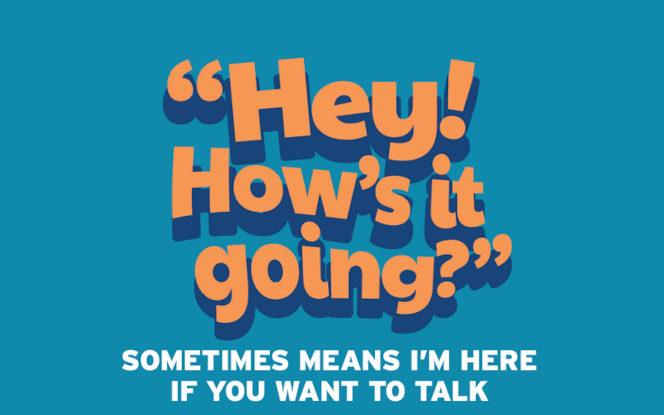This is a guest post by Jay Hellings, one of our therapists.
When you are worried about a person you care about, it can sometimes be difficult to have a conversation with them about how they are. There are lots of reasons for that.
– We might feel like it’s none of our business, that we would be prying if we tried to find out more, that if someone wanted us to know then they would tell us, or that if we showed we were worried we might embarrass them.
– We might think that we wouldn’t know what to do or say if we found out that something painful was happening. Would they expect us to fix it? Would we have to keep it a secret? Would we end up having to look after them?
Worries like this are not unusual and they are completely understandable. They are also things that we can change by learning just a little about how to talk about mental health.
In the UK (and many other places) mental health has been a taboo subject, something we weren’t supposed to mention. This has been changing in recent decades. Mental health issues are portrayed and discussed in film, TV, and other media more often and with more nuance. Some coverage is still poorly informed or excessively dramatic, but awareness of mental health issues has increased.
The increase in awareness has been helped by many organisations and campaigns. One of those campaigns is Time to Talk day. They make it clear that awareness isn’t enough on its own and encourage everyone to make mental health something to talk about. Time to Talk offer concrete ideas about how to start a conversation about mental health. They also offer 5 brief, valuable tips on how respond to someone who may or may not want to tell you about something difficult they are experiencing.
If you want to feel even more prepared to talk to others about mental health, you could do the Conversations in the Community online course created by Mind. (Mind is one of the organisations in the Time to Talk day campaign.) You can do the course at your own pace and no one will assess you. There are example conversations to watch and a chance to practice the skills you learn. It contains 90 minutes of lessons and practice but there’s no need to do it all in one go.
Time to Talk day is on the 1st of February. You can find out more at: https://timetotalkday.co.uk/
If you are dealing with something difficult and don’t know who to talk to, consider booking a session with Jay Hellings. one of our therapists. Jay will support you to talk about what is on your mind, and can offer you a different perspective on what is happening if you would like that. Give Physio & Therapies a call on 01706 819464 or email us to find out more.

